- Kenmore refrigerator water filters
- Whirlpool refrigerator water filters
- Samsung refrigerator water filters
- GE refrigerator water filters
- LG refrigerator water filters
- Frigidaire refrigerator water filters
- KitchenAid refrigerator water filters
- Maytag refrigerator water filters
- Kenmore Elite refrigerator water filters
- Estate refrigerator water filters
- GE Profile refrigerator water filters
- Amana refrigerator water filters
- Bosch refrigerator water filters
- Dacor refrigerator water filters
- Electrolux refrigerator water filters
Can’t find your part? Contact us: +1-309-603-4777
Top DIY repair help
View All Repair Categories
Appliances
Lawn & Garden
Power Tools
Home Improvement
Sports & Leisure
Heating & Cooling
OrdersSchedule a repair
Keep track of the models you own in your profile
Sign in or Register to view or add models
5 snowblower tips and tricks

Your snowblower makes it so much easier to clear the snowy mess from your sidewalks and driveways.
These tips help your snowblower clear snow as efficiently as it can, so you can return to the warmth of your home faster.
Once you're done reading the tips, check out our snowblower repair guide page for more tips, answers to most frequently asked questions, repair guides and other articles and videos. Shop Sears PartsDirect for all your snowblower replacement parts, too.
Snowblower tips and tricks
If possible, blow snow that's newly fallen, before it gets packed down or hardens.
If you keep the snowblower in a heated garage, move the snowblower outside for 5-10 minutes and let it adjust to the outdoor temperature. Then, start the engine and let it warm up for a few minutes. Letting it adjust to the outdoor temperature allows the engine start and adjust to the operating air temperature for smoother and steady running.
Before you start, spray a small amount of silicone spray inside the chute to prevent clogging. If the chute starts to clog, pause to allow the chute to clear. If the chute clogs completely, turn off your snow blower and then use the clean-out tool that came with your machine or a thin wooden stick to remove clog.
Start out slowly, increasing your speed only to the point where you feel the engine is working at peak efficiency. If the engine strains, slow down or blow a smaller swath of snow.
For deeper snow, push down on the handles to raise the front and make a first pass to remove the upper layer of snow, and the do a second pass to remove the rest.
Was this information helpful?
Symptoms for gas snowblowers
Choose a symptom to see related snowblower repairs.
Things to do: replace the spark plug, change the oil, rebuild the carburetor, adjust valve lash, adjust or replace the b…
Main causes: clogged chute, damaged auger blades, broken shear pins, worn auger belt, damaged gear case, engine problems…
Main causes: dirty carburetor, stale fuel…
Main causes: punctured tire, damaged rim…
Main causes: dirty carburetor, clogged fuel filter, dirty spark plug, incorrect valve lash, leaky engine gaskets…
Main causes: stale gas, clogged carburetor, clogged or broken fuel line, dirty spark plug, bad rewind starter, incorrect…
Main causes: loose drive clutch cable, damaged drive clutch cable, worn friction disc, scraper blade scraping the ground…
Main causes: snow build-up in chute, chute drive mechanism failure, bad chute control assembly…
Main causes: clogged chute, snow build-up in auger housing, broken auger shear pins, auger drive belt needs adjustment, …
Repair guides for gas snowblowers
These step-by-step repair guides will help you safely fix what’s broken on your snowblower.
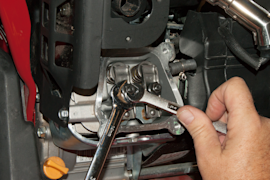
How to adjust snowblower engine valve lash
Adjust the engine valve lash on your snowblower to keep the engine starting and running smoothly.…
Repair difficulty
Time required
15 minutes or less

How to adjust snowblower skid shoes
To prevent snowblower auger and shave plate damage, adjust the skid shoes regularly to keep the shave plate ¼-inch high.…
Repair difficulty
Time required
15 minutes or less
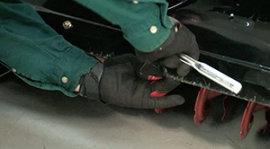
How to replace a snowblower shave plate
Follow the 7 easy steps in this repair guide/video to replace a worn out shave plate on your snowblower.…
Repair difficulty
Time required
15 minutes or less
Articles and videos for gas snowblowers
Use the advice and tips in these articles and videos to get the most out of your snowblower.
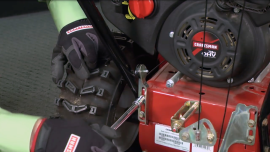
Find out how to clear chute obstructions, replace shear pins and adjust or replace your auger engagement cable if your s…
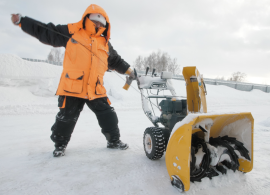
Find easy DIY tips to fix your snowblower when it won't start…
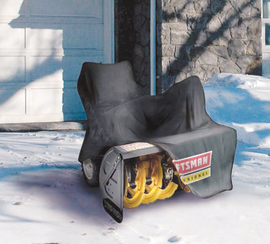
Protect your snowblower's engine and body by preparing it for after-season storage.…